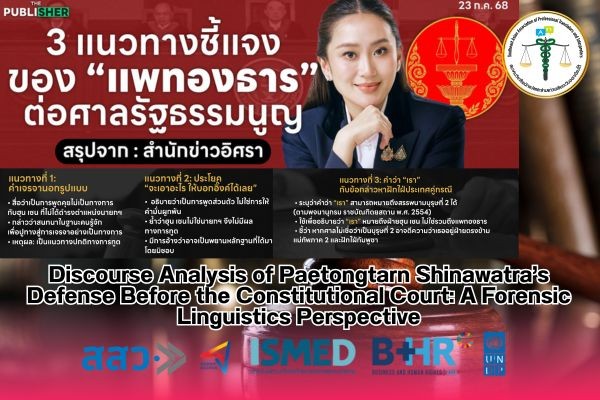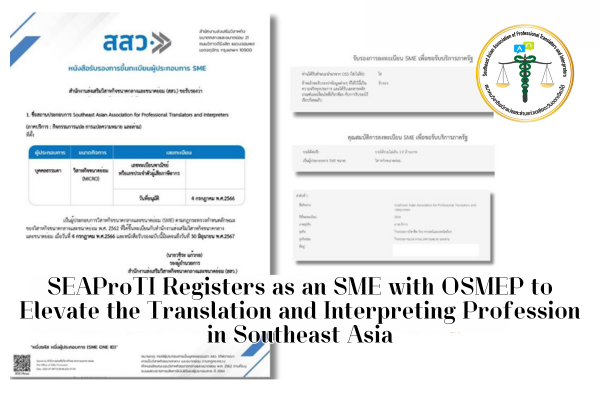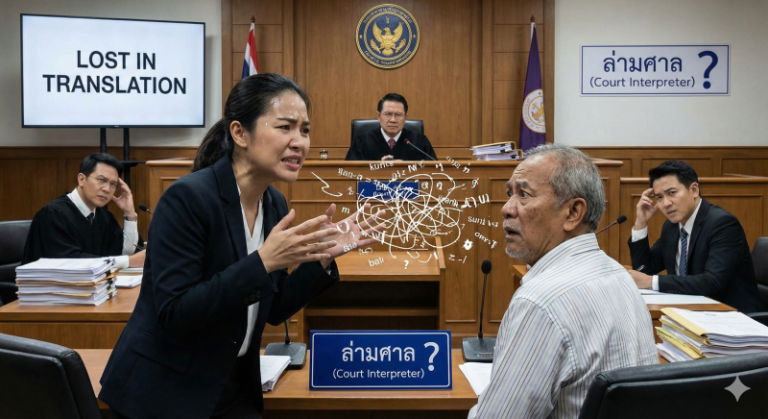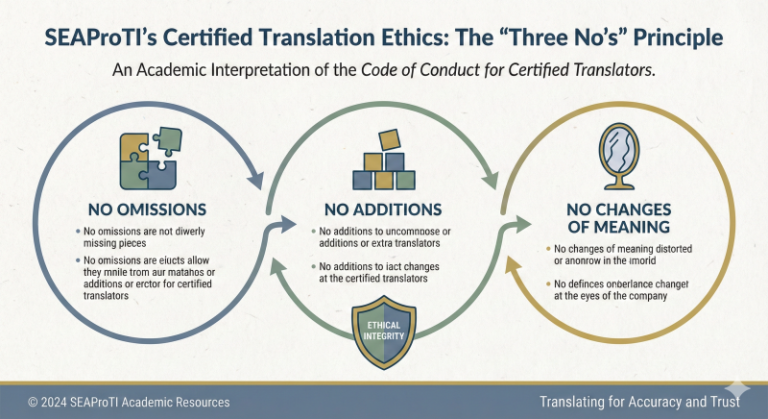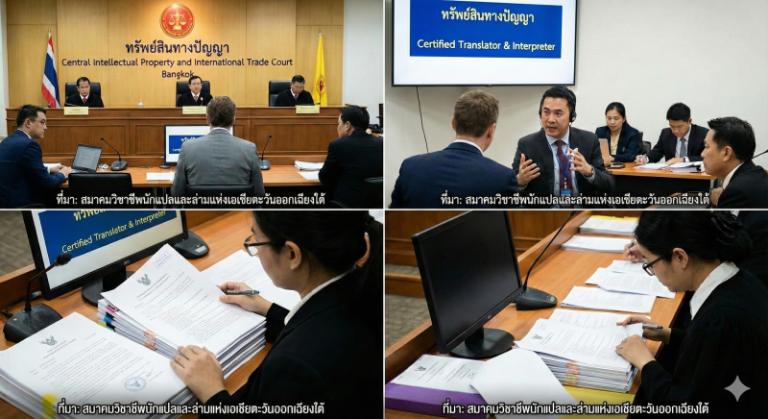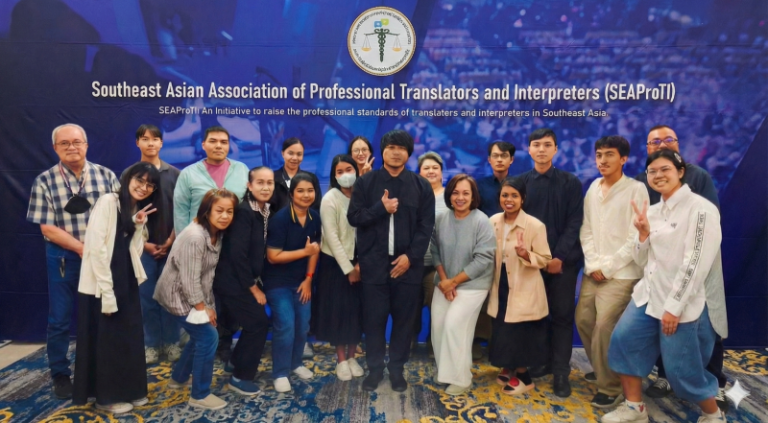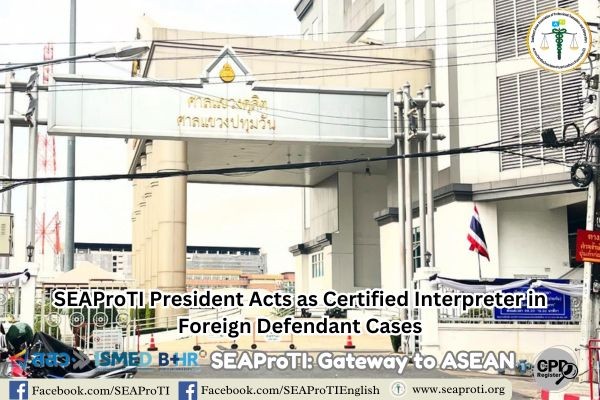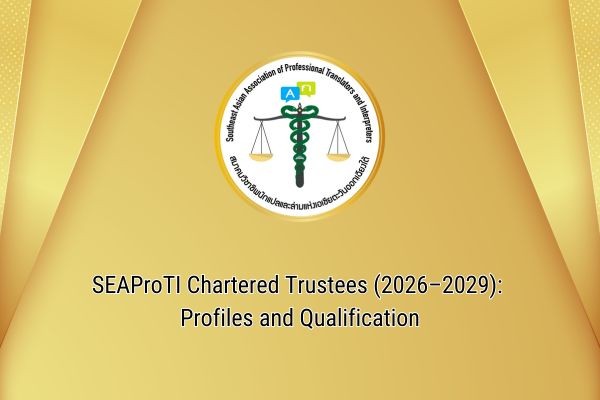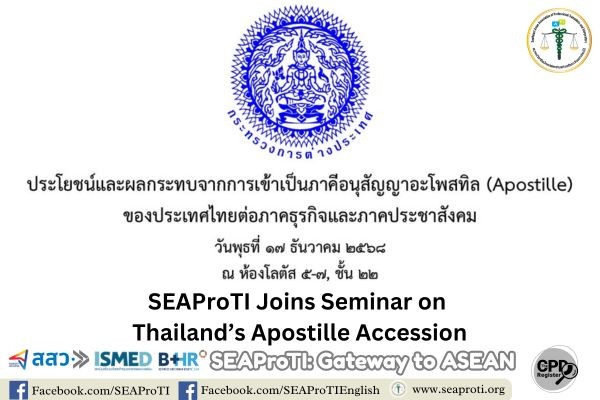Discourse Analysis of Paetongtarn Shinawatra’s Statement to the Constitutional Court:
A Forensic Linguistics Perspective
24 July 2025
By Wanitcha Sumanat, President of the Southeast Asian Association of Professional Translators and Interpreters (SEAProTI), and a registered forensic linguist with SEAProTI.
Abstract
This article examines the language used in the statement of Ms. Paetongtarn Shinawatra to Thailand’s Constitutional Court, following a petition challenging her eligibility to serve as Prime Minister, triggered by an audio clip of her conversation with former Cambodian Prime Minister Hun Sen. Drawing on principles of forensic linguistics, the analysis focuses on how linguistic choices may be used to evade liability, reframe context, or control interpretation. The article highlights ambiguities, discursive framing, pronoun usage, and the legal implications of political speech acts.
Introduction
Forensic linguistics is the study of language in legal and judicial contexts (Coulthard & Johnson, 2017). Analyzing public statements, especially those involving state interests, is crucial for understanding political behavior and ethical accountability. In the case of Ms. Paetongtarn Shinawatra under scrutiny for her qualifications as Prime Minister due to a leaked conversation with Hun Sen, significant legal and public questions have arisen: Did her words imply allegiance to a foreign state or unauthorized international negotiation?
This article analyzes her defense, focusing on three main arguments raised by her legal team:
- Framing the conversation as informal and unofficial
- Describing the remarks as private expressions
- Interpreting the pronoun “we” linguistically
Methodology
This study applies qualitative discourse analysis, using both Critical Discourse Analysis (CDA) and forensic linguistics frameworks, including:
- Deictic reference analysis (pronouns and contextual cues)
- Speech act analysis (intended functions of utterances)
- Pragmatic context analysis (context-driven meaning)
Primary data is drawn from Ms. Shinawatra’s official explanation as reported by Isranews Agency on July 23, 2025.
Findings
1. Framing the Discourse as Informal
Her statement aims to frame the interaction as a private conversation, not an official diplomatic engagement, emphasizing that Hun Sen held no official position at the time.
From a forensic linguistic perspective, this is a pragmatic strategy to downgrade the formality of the context, detaching the utterance from state authority. Gibbons (2003) refers to this as pragmatic framing, where the perceived legal force of a statement is altered by reframing its communicative setting.
2. Ambiguity and Indirect Speech Acts
The phrase:
“If you need anything, just let Ink (Paetongtarn’s nickname) know.”
can be interpreted variously as a friendly remark or a political commitment. The legal team asserts it was a polite, personal gesture rather than a political offer.
Under speech act theory (Austin, 1962; Searle, 1969), such an utterance may constitute an indirect speech act, where implied meaning depends heavily on context. However, courts may focus on the perlocutionary effect, the real-world consequence of the speech, rather than the speaker’s illocutionary intent.
3. Use of the Pronoun “We” and Speaker Positioning
The statement:
“I don’t want Uncle to listen to people who oppose us, like the Commander of Region 2.”
was interpreted to suggest Paetongtarn was aligning herself with a foreign leader against the Thai military. The defense argued that “we” referred to the second person (Hun Sen), not “us” as a group including the speaker.
Linguistically, pronouns construct power dynamics and group membership in discourse (Wales, 1996). If “we” is interpreted as the first-person plural, it could indicate alignment with a foreign party, potentially supporting accusations of foreign allegiance.
Conclusion and Discussion
This case exemplifies the strategic use of language in political and legal self-defense through:
- Downplaying formality
- Ambiguating intent
- Repositioning pronouns to evade responsibility
From a forensic linguistics standpoint, a public figure’s speech cannot be entirely separated from their political role. Even if framed as private, utterances with illocutionary force and perlocutionary effect that impact national security may render linguistic defenses insufficient in the eyes of the law or the public.
References:
- Austin, J. L. (1962). How to Do Things with Words. Oxford University Press.
- Coulthard, M., & Johnson, A. (2017). An Introduction to Forensic Linguistics: Language in Evidence (2nd ed.). Routledge.
- Gibbons, J. (2003). Forensic Linguistics: An Introduction to Language in the Justice System. Blackwell.
- Searle, J. R. (1969). Speech Acts: An Essay in the Philosophy of Language. Cambridge University Press.
- Wales, K. (1996). Personal Pronouns in Present-Day English. Cambridge University Press.
- Isranews Agency. (2025, July 23). Three Main Arguments in Paetongtarn’s Defense to the Constitutional Court. https://www.isranews.org
Image credit: The PUBLISHER
SEAProTI’s certified translators, translation certification providers, and certified interpreters:
The Southeast Asian Association of Professional Translators and Interpreters (SEAProTI) has officially announced the criteria and qualifications for individuals to register as “Certified Translators,” “Translation Certification Providers,” and “Certified Interpreters” under the association’s regulations. These guidelines are detailed in Sections 9 and 10 of the Royal Thai Government Gazette, issued by the Secretariat of the Cabinet under the Office of the Prime Minister of the Kingdom of Thailand, dated July 25, 2024, Volume 141, Part 66 Ng, Page 100. the Royal Thai Government Gazette
บทวิเคราะห์วาทกรรมจากคำชี้แจงของนางสาวแพทองธาร ชินวัตรต่อศาลรัฐธรรมนูญ: มุมมองนิติภาษาศาสตร์
24 กรกฎาคม 2568
โดย คุณวณิชชา สุมานัส นายกสมาคมวิชาชีพนักแปลและล่ามแห่งเอเชียตะวันออกเฉียงใต้ และนักนิติภาษาศาสตร์ขึ้นทะเบียนกับสมาคมวิชาชีพนักแปลและล่ามแห่งเอเชียตะวันออกเฉียงใต้
บทคัดย่อ
บทความนี้ศึกษาการใช้ภาษาในคำชี้แจงของนางสาวแพทองธาร ชินวัตร ต่อศาลรัฐธรรมนูญ ภายหลังมีคำร้องให้วินิจฉัยคุณสมบัติในการดำรงตำแหน่งนายกรัฐมนตรี อันเนื่องมาจากคลิปเสียงสนทนาระหว่างเธอกับสมเด็จฮุน เซน อดีตนายกรัฐมนตรีกัมพูชา โดยใช้หลักนิติภาษาศาสตร์ (Forensic Linguistics) ในการวิเคราะห์วาทกรรมเพื่อพิจารณาว่ามีการใช้ถ้อยคำเพื่อเลี่ยงความรับผิด ปรับเปลี่ยนบริบท หรือควบคุมการตีความอย่างไร ทั้งนี้ บทความเน้นการวิเคราะห์คำที่มีลักษณะกำกวม การวางกรอบบทสนทนา (framing) การใช้สรรพนาม และผลทางนิติศาสตร์ของการสื่อสารในบริบทการเมือง
บทนำ
นิติภาษาศาสตร์ (Forensic Linguistics) เป็นศาสตร์ที่ศึกษาการใช้ภาษาในบริบทของกฎหมายและกระบวนการยุติธรรม (Coulthard & Johnson, 2017) การวิเคราะห์คำพูดของบุคคลสาธารณะ โดยเฉพาะในคดีที่เกี่ยวข้องกับผลประโยชน์แห่งรัฐ เป็นเรื่องที่มีนัยสำคัญอย่างยิ่งต่อการตีความพฤติกรรมทางการเมืองและจริยธรรมทางการปกครอง ในกรณีของนางสาวแพทองธาร ชินวัตร ซึ่งอยู่ระหว่างการตรวจสอบคุณสมบัติการดำรงตำแหน่งนายกรัฐมนตรี กรณีคลิปเสียงกับสมเด็จฮุน เซน ได้เกิดคำถามสำคัญทางกฎหมายและสาธารณชนว่า คำพูดบางถ้อยคำของเธอมีลักษณะของการฝักใฝ่ประเทศคู่กรณี หรือใช้ตำแหน่งหน้าที่ในการเจรจาระหว่างประเทศหรือไม่
บทความนี้มีเป้าหมายเพื่อวิเคราะห์คำชี้แจงของแพทองธารใน 3 ประเด็นหลักที่ทีมกฎหมายเสนอ ได้แก่
- การวางกรอบบทสนทนาเป็นการพูดคุยที่ไม่เป็นทางการ
- การอธิบายถ้อยคำว่าเป็นคำพูดในระดับส่วนตัว
- การตีความคำว่า “เรา” ในเชิงภาษาศาสตร์
ระเบียบวิธีวิจัย
การศึกษานี้ใช้การวิเคราะห์ข้อความเชิงคุณภาพ โดยอาศัยแนวคิดวาทกรรมวิเคราะห์เชิงวิพากษ์ (Critical Discourse Analysis) และหลักการของนิติภาษาศาสตร์ (Forensic Linguistics) เช่น
- การวิเคราะห์สรรพนามและคำชี้เฉพาะ (Deictic Reference)
- การวิเคราะห์เจตนาในการพูด (Speech Acts)
- การวิเคราะห์บริบททางวัจนปฏิบัติ (Pragmatic Context)
การศึกษานี้ใช้ข้อมูลจากคำชี้แจงที่สำนักข่าวอิศรารายงานเมื่อวันที่ 23 กรกฎาคม 2568 เป็นแหล่งข้อมูลหลัก
ผลการวิเคราะห์
1. การวางกรอบบทสนทนา (Framing Discourse as Informal)
คำชี้แจงพยายามวางบริบทของการสนทนาให้เป็น “การพูดคุยส่วนตัว” ไม่ใช่ “การเจรจาทางการทูต” ทั้งยังชี้ว่า สมเด็จฮุน เซน ไม่ได้ดำรงตำแหน่งทางการ จึงไม่เข้าข่ายการเจรจาระหว่างรัฐ
แนวทางนี้สะท้อนการใช้ภาษาเพื่อ “ลดระดับความเป็นทางการ” และตัดความเชื่อมโยงกับอำนาจรัฐ ซึ่งในมุมของนิติภาษาศาสตร์ ถือเป็นการใช้ pragmatic framing เพื่อเปลี่ยนผลเชิงกฎหมายของคำพูด (Gibbons, 2003)
2. การใช้ถ้อยคำกำกวม (Ambiguity and Indirect Speech Acts)
ประโยค “จะเอาอะไร ให้บอกอิ๊งค์ได้เลย” เป็นคำพูดที่เปิดช่องให้ตีความได้หลายแบบ ทั้งในฐานะคำเชิญชวนทั่วไป หรือคำมั่นทางการเมือง ทีมกฎหมายชี้แจงว่าเป็นการพูดเชิงมารยาทส่วนบุคคล ไม่ใช่ข้อเสนอทางการเมือง
จากมุมมองภาษาศาสตร์วัจนปฏิบัติ (Pragmatics) คำพูดนี้อาจจัดเป็น indirect speech act ที่ขาดเจตนาผูกพัน ซึ่งต้องใช้บริบท (context) ในการตีความ (Austin, 1962; Searle, 1969) อย่างไรก็ตาม การตีความของผู้ฟังหรือศาลอาจพิจารณาที่ perlocutionary effect หรือผลที่เกิดขึ้นจริงจากคำพูด มากกว่าความตั้งใจของผู้พูด
3. การใช้คำว่า “เรา” และการชี้เฉพาะ (Pronoun and Positioning)
คำว่า “เรา” ในประโยค “ไม่อยากให้อังเคิลไปฟังคนตรงข้ามกับเรา อย่างพวกแม่ทัพภาค 2” ถูกตีความว่า แพทองธารจัดตำแหน่งตนเองอยู่ฝ่ายเดียวกับผู้นำต่างประเทศ และตรงข้ามกับสถาบันทหารของไทย
คำชี้แจงของทีมกฎหมายเสนอว่า “เรา” ในที่นี้คือ “บุรุษที่ 2” (คุณ) ไม่ใช่ “พวกเรา” ซึ่งสอดคล้องกับการใช้งานในบางบริบท เช่น การสอบสวน (“เราจะรับสารภาพไหม”)
ในทางภาษาศาสตร์ การใช้สรรพนามมีผลต่อการกำหนดตำแหน่งของผู้พูดในโครงสร้างอำนาจของบทสนทนา (Wales, 1996) หาก “เรา” เป็นบุรุษที่ 1 พหูพจน์จริง ก็อาจตีความว่าผู้พูดมีความรู้สึกร่วม หรือจัดวางตนในกลุ่มเดียวกับอีกฝ่าย ซึ่งจะนำไปสู่ข้อกล่าวหาฝักใฝ่ประเทศคู่กรณี
สรุปและอภิปราย
กรณีนี้สะท้อนการใช้ภาษาเพื่อการป้องกันตัวในบริบทกฎหมายและการเมืองอย่างชัดเจน ผ่านกลยุทธ์การลดทอนความเป็นทางการ การเบี่ยงเบนความหมาย และการใช้สรรพนามเพื่อควบคุมตำแหน่งทางวาทกรรม
จากมุมมองของนักนิติภาษาศาสตร์ คำพูดของบุคคลสาธารณะไม่สามารถแยกออกจากบทบาทหรือสถานะทางการเมืองได้โดยสิ้นเชิง แม้จะมีความพยายามอธิบายว่าคำพูดเป็นส่วนตัว หากสังคมหรือศาลเห็นว่ามี illocutionary force และ perlocutionary effect ที่ส่งผลต่อความมั่นคงแห่งรัฐ การปฏิเสธความรับผิดโดยอาศัยภาษาอาจไม่เพียงพอ
บรรณานุกรม:
- Austin, J. L. (1962). How to Do Things with Words. Oxford University Press.
- Coulthard, M., & Johnson, A. (2017). An Introduction to Forensic Linguistics: Language in Evidence (2nd ed.). Routledge.
- Gibbons, J. (2003). Forensic Linguistics: An Introduction to Language in the Justice System. Blackwell.
- Searle, J. R. (1969). Speech Acts: An Essay in the Philosophy of Language. Cambridge University Press.
- Wales, K. (1996). Personal Pronouns in Present-Day English. Cambridge University Press.
- สำนักข่าวอิศรา. (2568, 23 กรกฎาคม). 3 แนวทางชี้แจงของแพทองธารต่อศาลรัฐธรรมนูญ. https://www.isranews.org
เครดิตภาพประกอบ: The PUBLISHER
เกี่ยวกับนักแปลรับรอง ผู้รับรองการแปล และล่ามรับรองของสมาคมวิชาชีพนักแปลและล่ามแห่งเอเชียตะวันออกเฉียงใต้
สมาคมวิชาชีพนักแปลและล่ามแห่งเอเชียตะวันออกเฉียงใต้ (SEAProTI) ได้ประกาศหลักเกณฑ์และคุณสมบัติผู้ที่ขึ้นทะเบียนเป็น “นักแปลรับรอง (Certified Translators) และผู้รับรองการแปล (Translation Certification Providers) และล่ามรับรอง (Certified Interpreters)” ของสมาคม หมวดที่ 9 และหมวดที่ 10 ในราชกิจจานุเบกษา ของสำนักเลขาธิการคณะรัฐมนตรี ในสำนักนายกรัฐมนตรี แห่งราชอาณาจักรไทย ลงวันที่ 25 ก.ค. 2567 เล่มที่ 141 ตอนที่ 66 ง หน้า 100 อ่านฉบับเต็มได้ที่: นักแปลรับรอง ผู้รับรองการแปล และล่ามรับรอง


